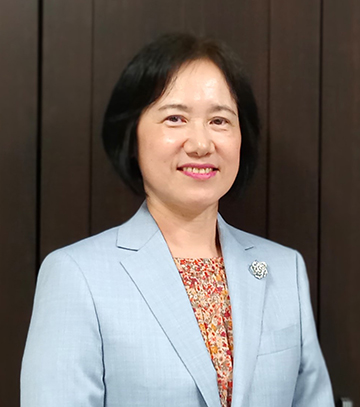
On May 8, Japan's government reclassified Covid-19 as a "Class 5" disease according to the Infectious Diseases Control Law, putting it on the same level as the seasonal flu. This comes three years and four months after the first infections were confirmed in Japan, signaling a transition from a state of emergency to a non-emergency in terms of the response to Covid-19. What have we learned from this pandemic that has lasted over three years? What kinds of changes will this transition bring, and what issues will we continue to face? We asked Professor MORI Yasuko of the Division of Clinical Virology at Kobe University Graduate School of Medicine's Center for Infectious Diseases.
With the World Health Organization (WHO) ending its declaration of a state of emergency on May 5, it would appear that we have turned a corner in this pandemic. As an expert in the field of infectious diseases, what do you feel we have learned from these three years of Covid-19 pandemic response?
Professor Mori: We were forced to face the fact that being caught off guard by an infectious disease capable of causing a global pandemic, especially a virus capable of airborne infection, could lead to a global pandemic on a scale that humanity has never seen before. As a specialist on infectious diseases, I thought I knew this on some level, but this pandemic has raised my awareness to new heights. Most researchers were not able to predict the degree to which this virus would spread across the globe, causing high numbers of deaths and serious illness when the first cases were reported in China in December of 2019.
At the same time, it's also amazing that a viable vaccine was produced in such a relatively short time. Typically, the safety of vaccines is paramount, and the approval process takes years. In contrast, the Covid-19 vaccines were developed quickly while people's lives were hanging in the balance, making them something of a "field vaccine." The vaccines were able to be developed so quickly in the U.S. thanks to the messenger RNA research that had already been done by the time vaccine development began, and the fact that researchers there got to work early using that research. These are some of the lessons that we saw other countries doing and that Japan would do well to incorporate into our preparedness for the next potential pandemic.
Carry forward what we're learned-it's not over yet
How would you assess Japan's response to the Covid-19 pandemic?
Professor Mori: On this reclassification as Class 5 specifically, I think the government could actually have made that decision even earlier. Looking at other examples outside Japan makes me think that perhaps we should have considered getting society and the economy running again sooner. But this was all the first time we've had to deal with Covid-19, so all we could do was try things out and see. The important thing to remember, however, is that this doesn't mean that it's over, but we already have a lot of things we've learned for next time.
One example of a lesson we've learned is that we need to continue to push toward digitalization in areas like understanding data on infectious diseases, getting information out, and collaboration between medical facilities to facilitate a smoother response.
What major changes will we see with the change to Class 5?
Professor Mori: One big difference is that people will be able to be seen at more different medical facilities than before. Things may not change overnight, but we're also going to see restaurants and bars return to their normal operating hours and people's lives will be freer in general.
At the same time, it's essential that we continue to protect the elderly and other people who are at higher risk. Being changed to Class 5 doesn't mean that the virus is going away. In fact, it will be even more important for people as individuals to keep it in mind. In spite of the costs, people need to have testing kits, pulse oximeters, and other tools ready. If you have symptoms, stay home as much as you can, and wear a mask, and if you are at higher risk should see a doctor right away. These are the things we need to keep in mind going forward.






